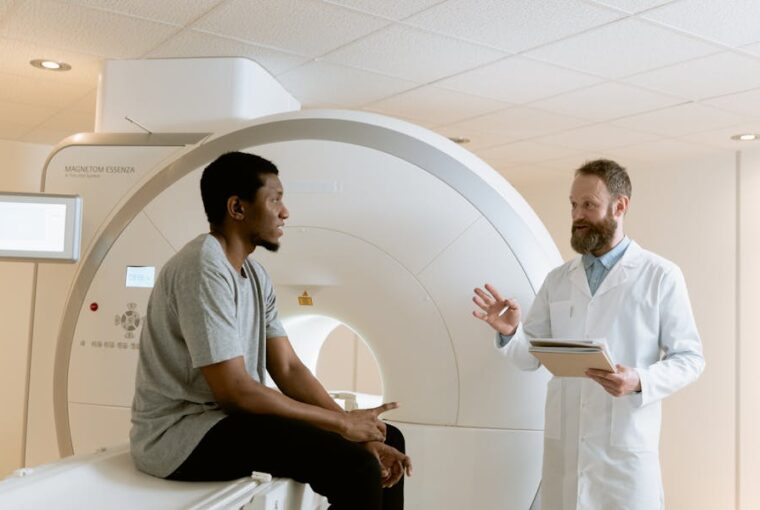A traumatic brain injury (TBI) can have profound effects on cognitive function, including memory. Memory problems are common among individuals who have experienced a TBI, impacting various aspects of daily life and hindering rehabilitation efforts. However, there are strategies and techniques that can help improve memory function and enhance quality of life for individuals living with TBI.
How Does a Traumatic Brain Injury Occur?
A traumatic brain injury (TBI) is a brain injury, whether it be bruising, bleeding, or a penetrating injury. It usually occurs when your head or body has a violent volt that causes your brain to shake around inside your skull. Some incidents that may cause a TBI include a fall, car accident, sport injury, assault, and more.
A few symptoms that may occur are headaches, dizziness, problem with speech, sensory problems, mood changes, and even memory or concentration problems. If you experience any symptoms after a traumatic brain injury, contact a Fresno Traumatic Brain Injury lawyer, for legal support.
Understanding Memory Impairment After TBI:
Memory impairment after TBI can manifest in different ways, including difficulties with short-term memory, long-term memory, working memory, and prospective memory (remembering to do things in the future). These challenges can significantly impact an individual’s ability to learn new information, recall past events, and engage in daily activities.
Strategies for Improving Memory:
1. Establish Routines and Structure:
Creating a structured environment can help individuals with TBI manage their daily activities and reduce cognitive overload. Establishing routines for tasks such as medication management, meal planning, and daily chores can enhance memory recall by providing a consistent framework for remembering important activities.
2. Use Memory Aids:
Memory aids such as calendars, planners, and reminder apps can be invaluable tools for individuals with TBI. These aids can help them keep track of appointments, deadlines, and tasks, reducing the cognitive burden of remembering everything solely through internal memory processes. Additionally, labeling items, creating lists, and using sticky notes can aid in remembering specific information.
3. Practice Repetition and Review:
Repetition is key to encoding information into memory, especially for individuals with TBI who may experience difficulties with learning and retention. Encourage frequent repetition and review of important information to reinforce memory consolidation. Breaking down complex tasks into smaller steps and practicing each step repeatedly can also facilitate memory recall.
4. Utilize Multisensory Learning Techniques:
Engaging multiple senses during learning can enhance memory retention and recall. Encourage the use of multisensory learning techniques, such as incorporating visual, auditory, and tactile cues into learning activities. For example, reading information aloud, using visual aids like diagrams or charts, and incorporating hands-on activities can all help improve memory encoding and retrieval.
5. Maintain a Healthy Lifestyle:
A healthy lifestyle can support cognitive function and improve memory after TBI. Encourage individuals with TBI to prioritize adequate sleep, regular exercise, and a balanced diet rich in brain-healthy nutrients such as omega-3 fatty acids, antioxidants, and vitamins. Avoiding alcohol and drugs, managing stress levels, and staying socially engaged can also support overall brain health and memory function.
6. Engage in Cognitive Rehabilitation:
Cognitive rehabilitation programs tailored to address memory deficits can be beneficial for individuals with TBI. These programs may include various cognitive exercises and strategies aimed at improving memory, attention, problem-solving, and other cognitive skills. Working with a neuropsychologist or cognitive therapist can help individuals with TBI develop personalized rehabilitation plans based on their specific cognitive strengths and weaknesses.
7. Seek Support and Resources:
Finally, encourage individuals with TBI and their caregivers to seek support from healthcare professionals, support groups, and community resources specializing in brain injury. These resources can provide valuable guidance, education, and emotional support throughout the recovery process, helping individuals cope with memory challenges and navigate the complexities of life after TBI.
Conclusion
Memory impairment is a common challenge faced by individuals recovering from traumatic brain injury (TBI). However, with the right strategies and support, it is possible to improve memory function and enhance quality of life for individuals living with TBI. By implementing techniques such as establishing routines, using memory aids, practicing repetition, engaging in multisensory learning, maintaining a healthy lifestyle, participating in cognitive rehabilitation, and seeking support from healthcare professionals and community resources, individuals with TBI can work towards optimizing their memory abilities and achieving greater independence and well-being in their daily lives.




